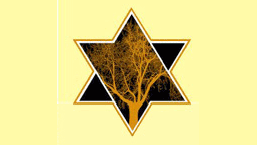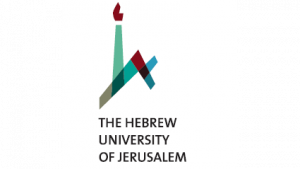IIJG Call for Research Proposals for Original Projects in Jewish Genealogy
The International Institute for Jewish Genealogy invites proposals for original research in the field of Jewish Genealogy, to be carried out in the academic year of 2016-17.
Proposals are to be submitted by 31 May, 2016. The results of the competition are to be announced by 1 September.
Research topics
Proposals in all areas of Jewish Genealogy are invited. They can be in the categories of pure genealogical research or in the form of inter-disciplinary research. They can also seek to provide Jewish genealogists and family historians with innovative “tools and technologies” to advance their work.
Proposals may be in the categories of pure genealogical research, or inter-disciplinary research. They may also seek to provide Jewish genealogists and family historians with innovative “tools and technologies” to advance their work.
Preference will be given to:
- Projects of broad interest to Jewish genealogists and a range of other scholars working in the humanities and social sciences.
- Projects based on primary sources (or equivalent), whose scope goes well beyond information gathering and retrieval, or simple databasing.
- Studies requiring a critical evaluation of the sources, analysis and synthesis of data.
- Studies whose resultant narrative is firmly positioned in a pertinent Jewish Studies context, whether historical, social, economic, cultural, religious or other.
- Projects that broaden the scope of Jewish genealogical inquiry - taking it, for example, into realm of the exact sciences, particularly computer science, in order to produce sophisticated tools and technologies for the Jewish genealogist.
- Proposals that are interdisciplinary and envisage synergisms between Jewish genealogy and other disciplines, to the benefit of all concerned.
The Institute will not support or fund:
- research into personal family trees, unless they are of demonstrable interest and relevance to Jewish genealogists generally;
- ongoing research, including doctoral research, being funded by another body;
- preparation and publication of books or monographs.
- purchase of personal equipment, such as laptops and cameras, that has not been specifically justified by the grant recipient and approved by the Academic Committee (any equipment so approved will be purchased and registered in the Institute’s name and returned in good condition to the Institute on the completion of the project).
- travel that has not been specifically justified by the grant recipient and approved by the Academic Committee.
- courses to acquire language or other skills to implement the research
- purchase of professional literature (books and periodicals) ostensibly required for the project.
Eligibility
The Institute invites research proposals from researchers on their own name, singly or as the Principal Investigator (PI) at the head of a research team.
Researchers must be academically qualified as appropriate for the proposed research, preferably being the holders of an advanced degree or equivalent.
They must also have the requisite language skills to carry out the proposed project.
To avoid disqualification, applicants are required to indicate (i) whether the proposal, or part of it, has been submitted for – and received - funding elsewhere; and (ii) whether previous results, directly or indirectly (or partially) related to the project, have been published in any form elsewhere.
Selection
Projets are judged on the basis of academic excellence by the Academic Committee. That Committee will also follow the successful applicants’ progress during the implementation of their research.
Terms
Proposals should be for projects to be completed within one or two years. One year proposals will be preferred.
Successful applicants will be expected to start their research no later than autumn 2016.
Grants of up to $10,000 will be awarded to successful applicants.
The Academic Committee’s decisions, including the size of actual grant to be awarded, are final and not open to appeal.
Publication
At the conclusion of the research the grant recipient will make a final report in the form an extended analytical narrative, explaining the aims and objectives of the research, and going on to contextualize and interpret the results for the educated reader. This narrative will be written in the style of an academic article, with foot-notes and full source and biographical references.
In the first instance, the narrative, and any accompanying appendices and/or databases, will be posted on the Institute’s website.
Thereafter, the grant recipient will make serious efforts to have the narrative, perhaps somewhat modified, published in an appropriate academic framework, such as a book, a scholarly journal (preferably peer-reviewed) or a collection of specialized studies.
In any publication, full and proper acknowledgement must be made of the Institute’s sponsorship and support for the research.

